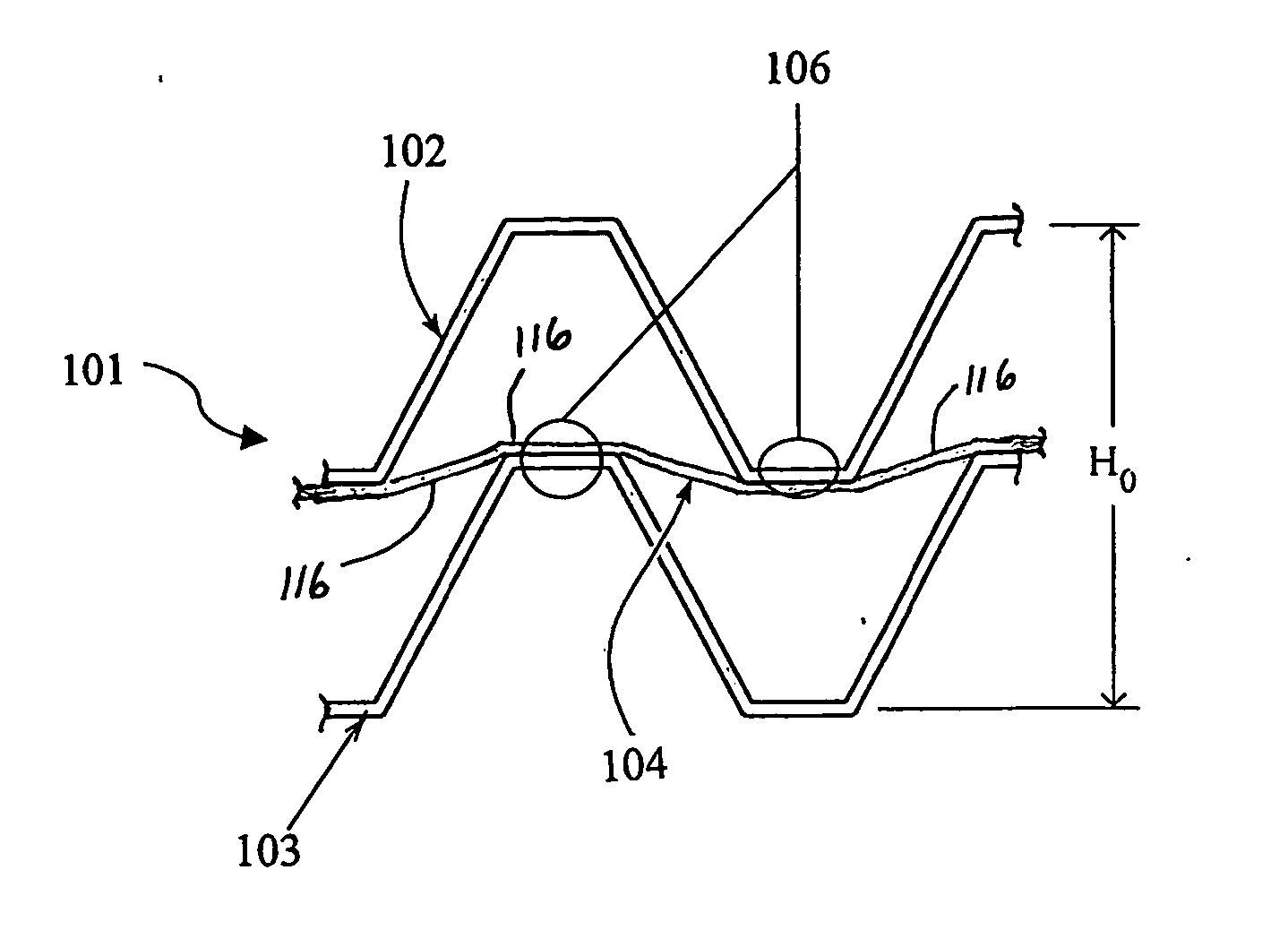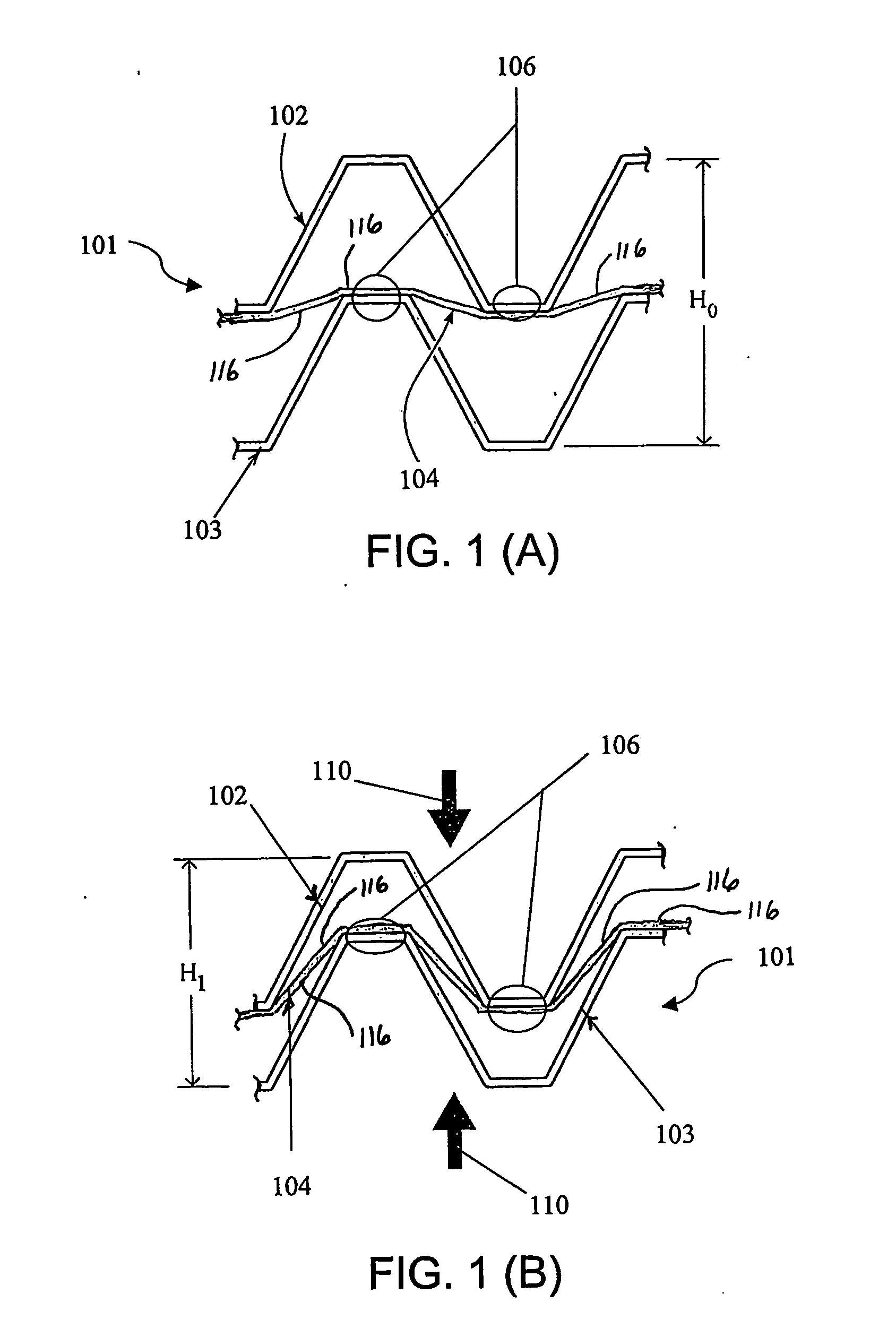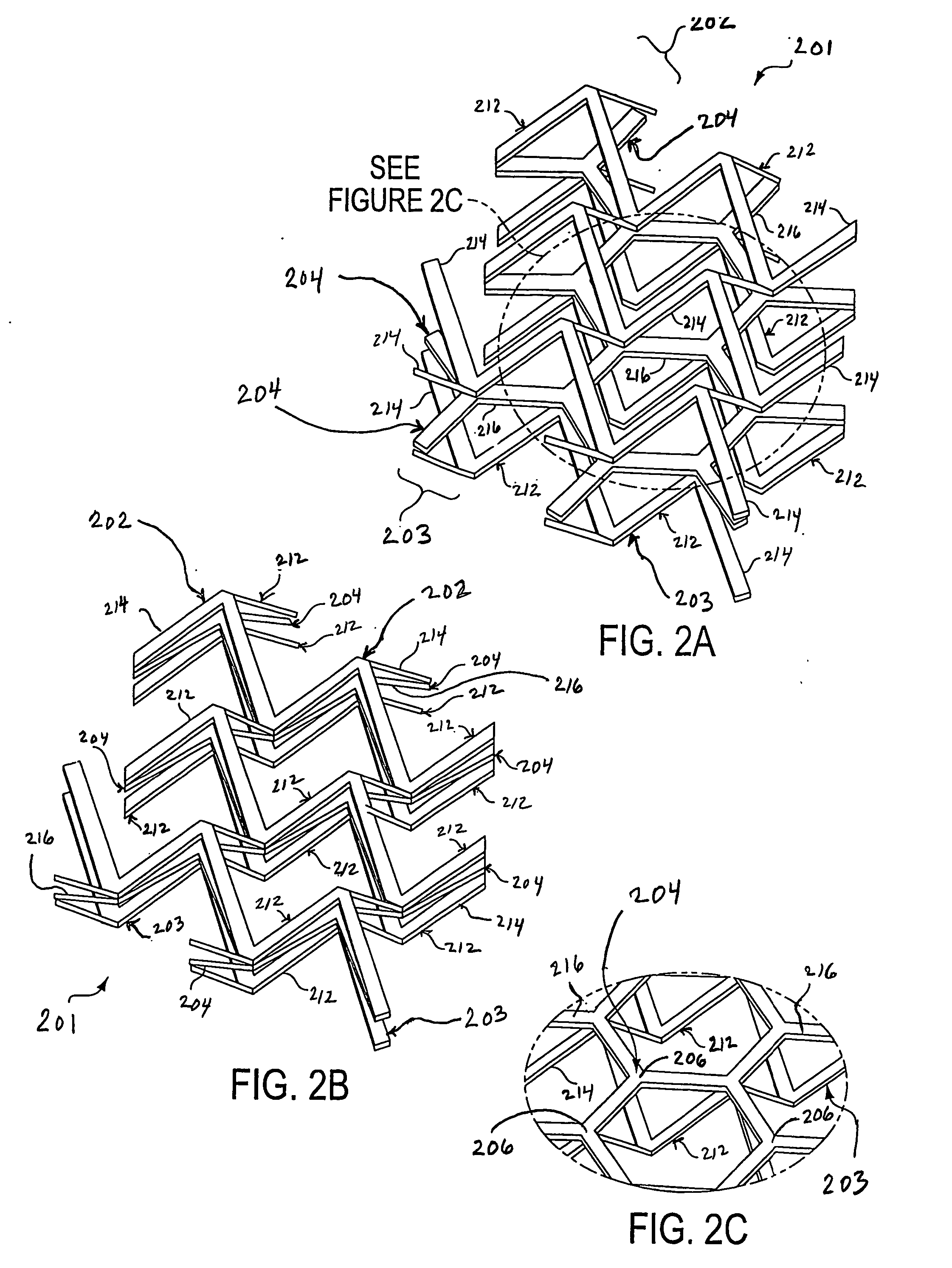Re-entrant cellular multifunctional structure for energy absorption and method of manufacturing and using the same
- Summary
- Abstract
- Description
- Claims
- Application Information
AI Technical Summary
Benefits of technology
Problems solved by technology
Method used
Image
Examples
Embodiment Construction
[0021] Referring generally to FIGS. 1(A)-(B), and as will be discussed in greater detail throughout this document, some exemplary embodiments of the present invention provides a multifunctional laminate structure 101 comprised of alternating layers of at least two types. The alternating layers having inter alia the various distinct characteristics. For example, characteristics of a first layer type may be lightweight, structurally efficient cellular design intended to interpenetrate when layers are compressed together as during deformation or impact loading. These layers are schematically represented by the upper cellular layer 102 and the lower cellular layer 103, and are arranged such that they are stacked directly on top of one another (e.g., in analogy with stacking chairs which interpenetrate to take up less space when stacked for storage). Referred to here as ‘cellular’ layers, they remain rigid (i.e., they do not deform) or at least substantially rigid during macroscopic comp...
PUM
| Property | Measurement | Unit |
|---|---|---|
| Force | aaaaa | aaaaa |
| Structure | aaaaa | aaaaa |
| Tensile properties | aaaaa | aaaaa |
Abstract
Description
Claims
Application Information
 Login to View More
Login to View More - R&D
- Intellectual Property
- Life Sciences
- Materials
- Tech Scout
- Unparalleled Data Quality
- Higher Quality Content
- 60% Fewer Hallucinations
Browse by: Latest US Patents, China's latest patents, Technical Efficacy Thesaurus, Application Domain, Technology Topic, Popular Technical Reports.
© 2025 PatSnap. All rights reserved.Legal|Privacy policy|Modern Slavery Act Transparency Statement|Sitemap|About US| Contact US: help@patsnap.com



